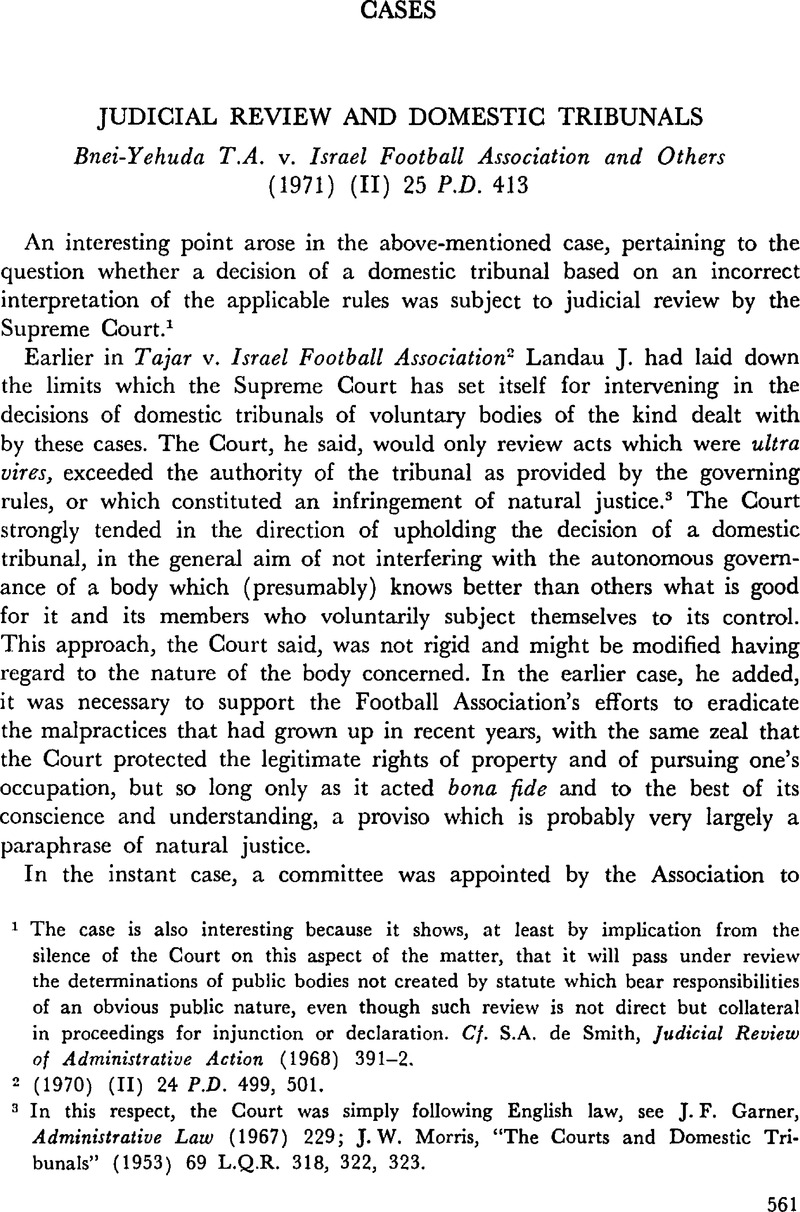No CrossRef data available.
Published online by Cambridge University Press: 12 February 2016

1 The case is also interesting because it shows, at least by implication from the silence of the Court on this aspect of the matter, that it will pass under review the determinations of public bodies not created by statute which bear responsibilities of an obvious public nature, even though such review is not direct but collateral in proceedings for injunction or declaration. Cf. de Smith, S.A., Judicial Review of Administrative Action (1968) 391–2.Google Scholar
2 (1970) (II) 24 P.D. 499, 501.
3 In this respect, the Court was simply following English law, see Garner, J. F., Administrative Law (1967) 229Google Scholar; Morris, J. W., “The Courts and Domestic Tribunals” (1953) 69 L.Q.R. 318Google Scholar, 322, 323.
4 It is a pity that the Supreme Court did not deal with this point. In English law the proposition—that an invalid order calculated to inflict substantial injury to the interests of an individual is challengable by him by injunction, although he has not suffered and is not in danger of suffering an actionable wrong—is not yet firmly rooted but is thought to obtain in the case of non-statutory domestic tribunals. The tendency in England is to adopt a narrow approach: for instance, locus standi will be denied, where the order made has wrongly conferred a benefit upon a competitor. See de Smith, op cit., pp. 474—475. The facts of the case under review here seemed ideal for a consideration of this problem.
5 [1952] 2 Q.B. 329.
6 Morris, op. cit., p. 331.
7 Ibid., pp. 327–328.
8 Haifa Refineries Ltd. v. National Labour Court (1972) (I) 26 P.D. 18, 21.
9 Morris, op. cit., p. 29; de Smith, op cit., p. 391 and cf. ibid., p. 112.